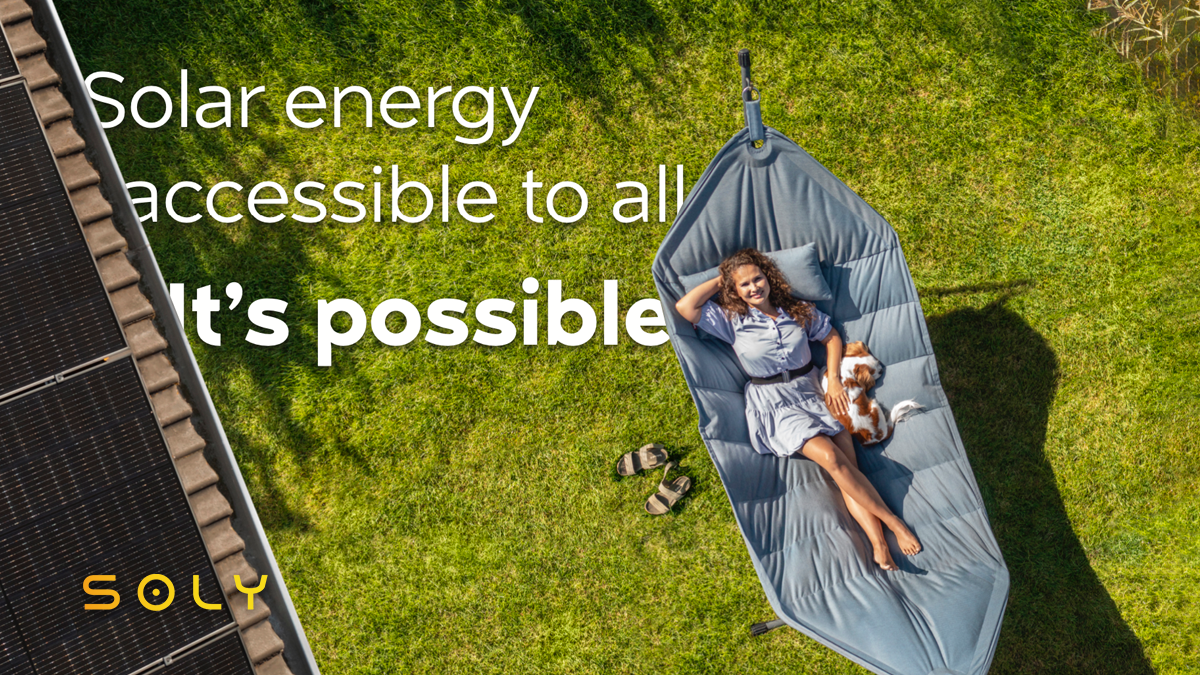

Soly

Groningen, Netherlands The
July 2018
Solar panel installation
Service with Significant Environmental Footprint
Austria,
Belgium,
Germany,
Italy,
Netherlands The,
South Africa,
United Kingdom
Soly is an international Clean Energy Tech company with a mission to make solar energy available to everyone. The company was founded in the summer of 2013 by brothers Patrick and Milan van der Meulen. The brothers were inspired at a young age by Al Gore’s documentary “An Inconvenient Truth” and have since decided to use their entrepreneurship ‘Asa force for good’. The company is today one of the European market leaders in the field of decentralized energy generation and storage through solar panels, batteries and charging stations. Soly focuses on the residential and business markets and is active in the Netherlands, South Africa (2019), Belgium (2022), Germany (2023) and the United Kingdom (2023). By developing its proprietary software platform, Soly is one of the most capital-efficient energy providers, with only 140 employees across five countries. The Soly platform won a spot in the Deloitte Technology Fast50 in 2021. Soly is an impact driven company and since 2018 B Corp certified. B Corp is an international label for companies that strive for the highest standards of sustainability, financial transparency, and social justice.
Overall B Impact Score
Governance 16.1
Governance evaluates a company's overall mission, engagement around its social/environmental impact, ethics, and transparency. This section also evaluates the ability of a company to protect their mission and formally consider stakeholders in decision making through their corporate structure (e.g. benefit corporation) or corporate governing documents.
What is this? A company with an Impact Business Model is intentionally designed to create a specific positive outcome for one of its stakeholders - such as workers, community, environment, or customers.
Workers 24.4
Workers evaluates a company’s contributions to its employees’ financial security, health & safety, wellness, career development, and engagement & satisfaction. In addition, this section recognizes business models designed to benefit workers, such as companies that are at least 40% owned by non-executive employees and those that have workforce development programs to support individuals with barriers to employment.
Community 19.5
Community evaluates a company’s engagement with and impact on the communities in which it operates, hires from, and sources from. Topics include diversity, equity & inclusion, economic impact, civic engagement, charitable giving, and supply chain management. In addition, this section recognizes business models that are designed to address specific community-oriented problems, such as poverty alleviation through fair trade sourcing or distribution via microenterprises, producer cooperative models, locally focused economic development, and formal charitable giving commitments.
Environment 46.8
Environment evaluates a company’s overall environmental management practices as well as its impact on the air, climate, water, land, and biodiversity. This includes the direct impact of a company’s operations and, when applicable its supply chain and distribution channels. This section also recognizes companies with environmentally innovative production processes and those that sell products or services that have a positive environmental impact. Some examples might include products and services that create renewable energy, reduce consumption or waste, conserve land or wildlife, provide less toxic alternatives to the market, or educate people about environmental problems.
What is this? A company with an Impact Business Model is intentionally designed to create a specific positive outcome for one of its stakeholders - such as workers, community, environment, or customers.
Customers 3.3
Customers evaluates a company’s stewardship of its customers through the quality of its products and services, ethical marketing, data privacy and security, and feedback channels. In addition, this section recognizes products or services that are designed to address a particular social problem for or through its customers, such as health or educational products, arts & media products, serving underserved customers/clients, and services that improve the social impact of other businesses or organizations.